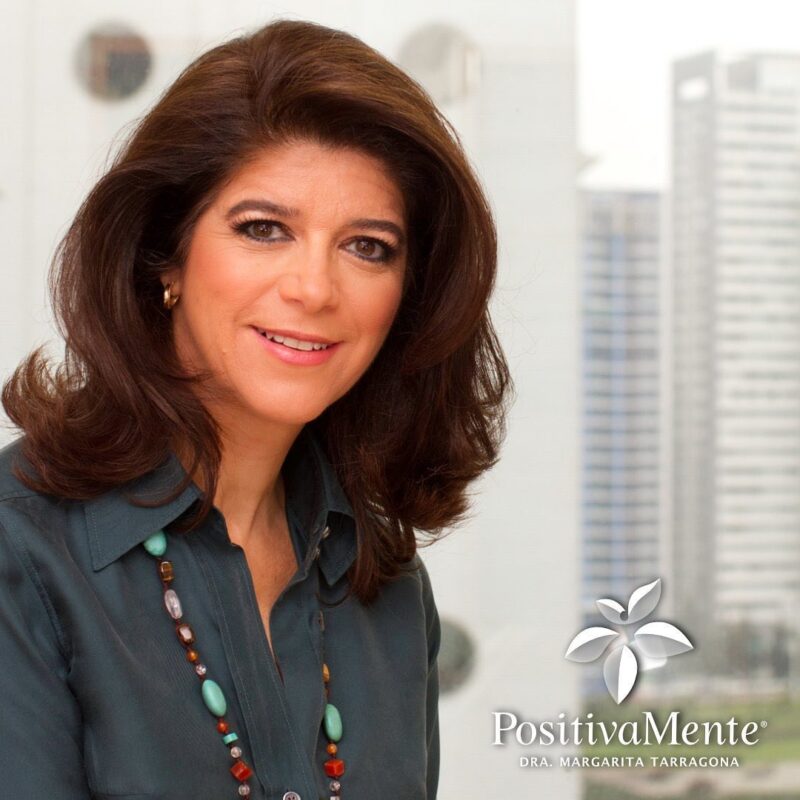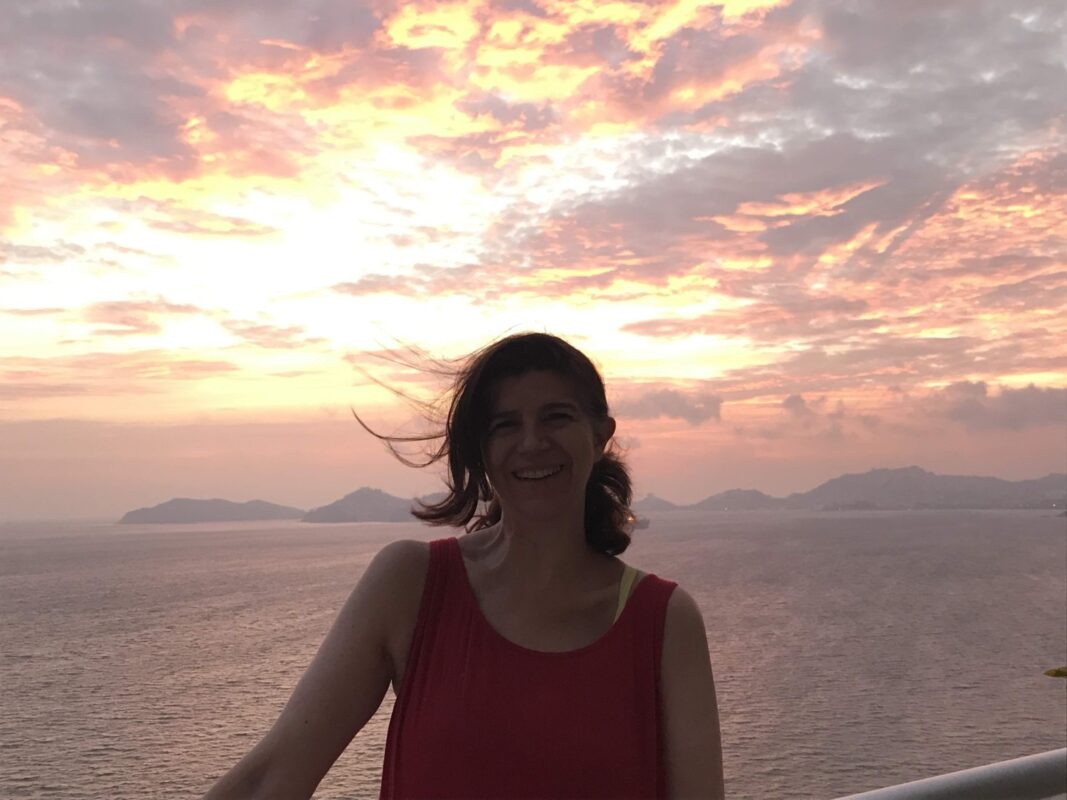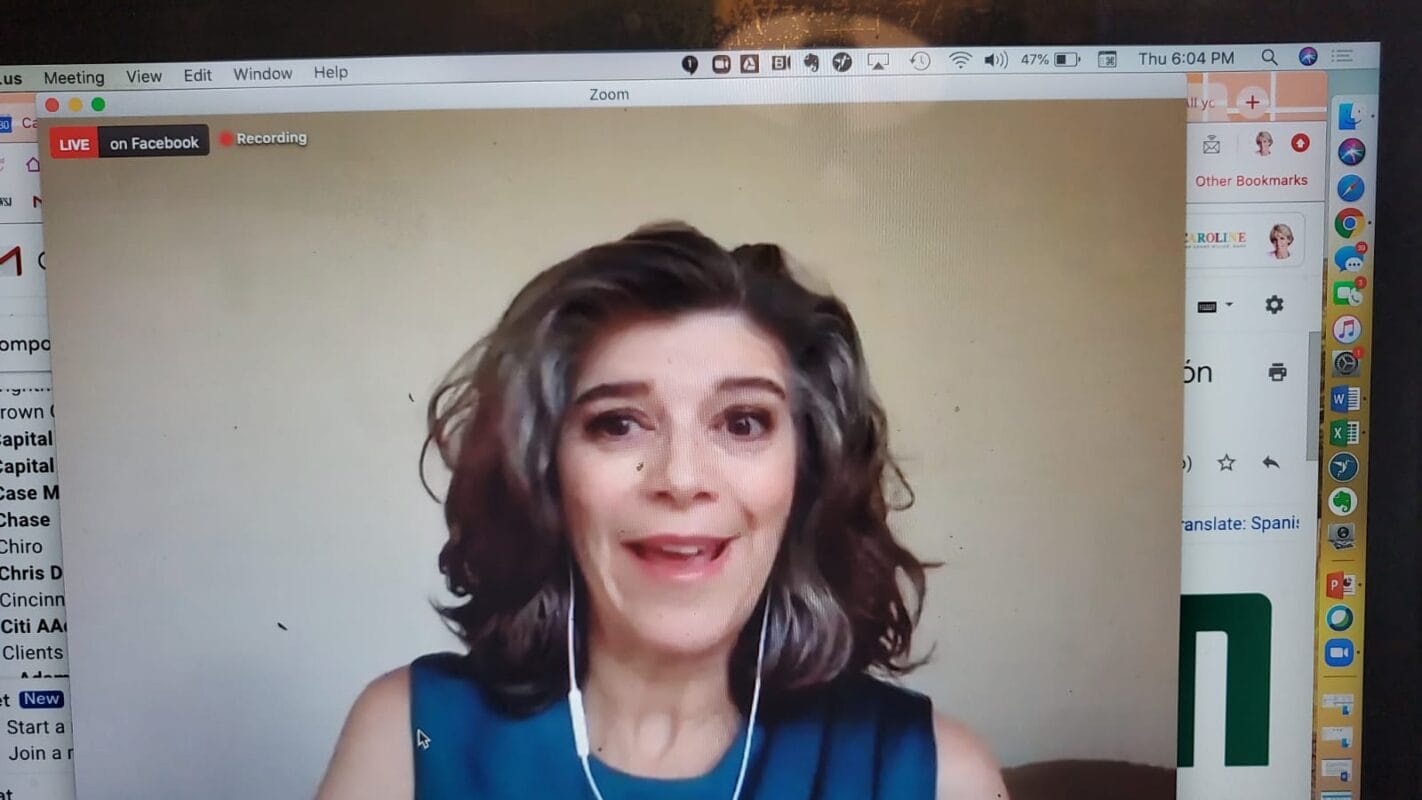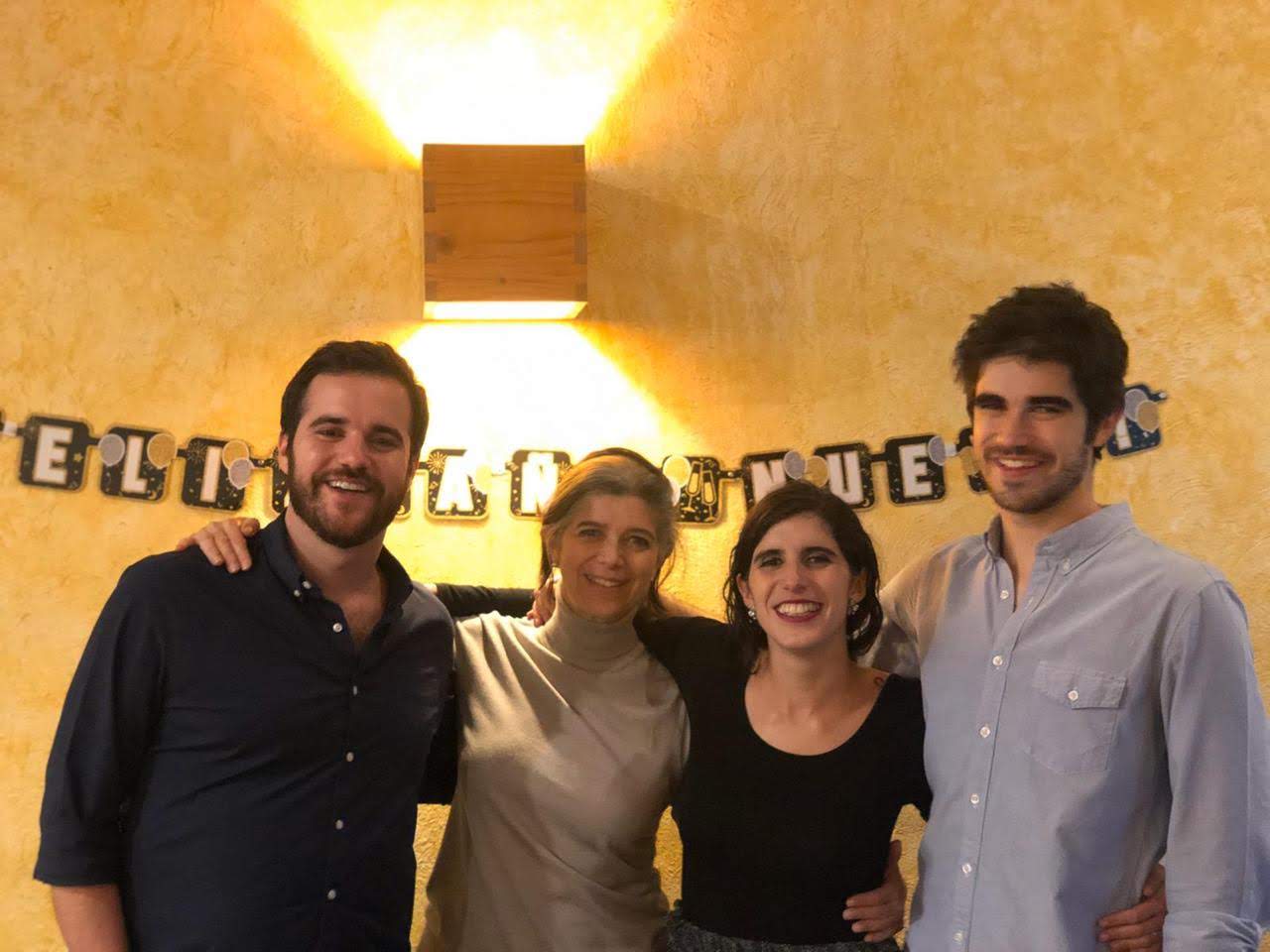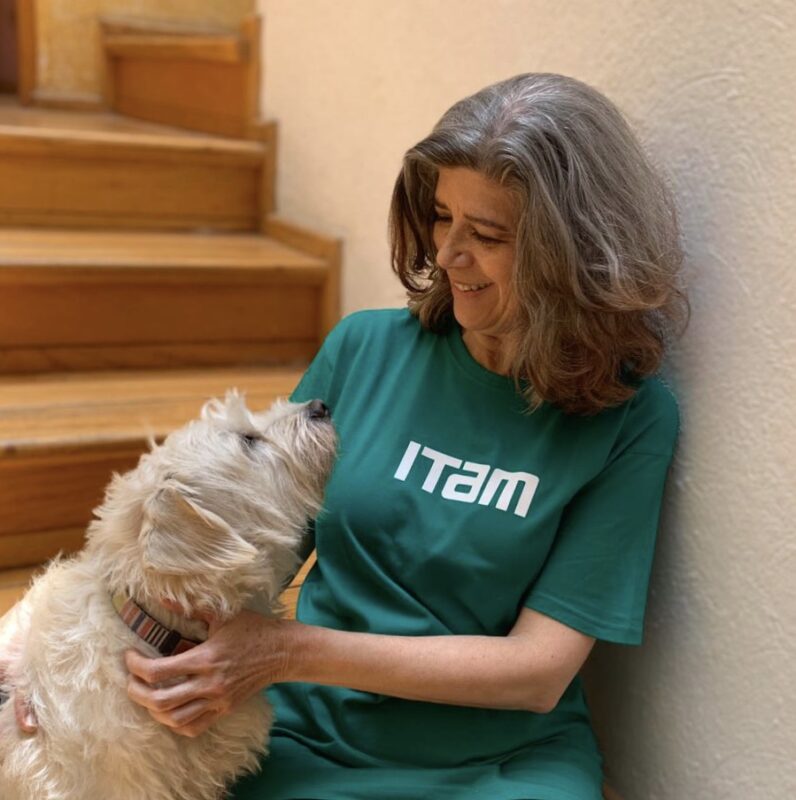Meet Margarita Tarragona, member of The Board of Advisor at International Positive Psychology Association, a psychologist, specialized in the processes of personal and relational transformation, such as coaching, consulting and psychotherapy. She integrates scientific findings on well-being, from Positive Psychology, with ways of working that are based on conversation and dialogue. She is Professor at Instituto Tecnológico Autónomo de México (ITAM), Penn LPS Online & PositivaMente.
Who is Margarita Tarragona? Define yourself
It is hard to define oneself, but I am a mother, sister, daughter, friend… and I am psychologist. Professionally, I see myself as a “pracademic”, a practitioner and academic. I spend about half of my time doing therapy and coaching, and the other half teaching in universities.
How were you as a kid?
I liked indoor activities, I would create imaginary houses in closets and in the space underneath a staircase in my grandparents´ home. I liked reading, drawing, and making crafts. My favorite game was playing school. I loved it, but many years later, my sisters and neighbors, who were the “pupils”, told me they hated it, that I was like a sergeant in a military academy!
You hold a bachelor’s degree in Psychology at Universidad Iberomexicana and a Doctor´s degree in Psychology from the University of Chicago, why did you choose those courses of study?
In retrospect, I think I had a vocation for service from an early age, and I was always very interested in understanding people and working with people.
“Everybody has strengths and beauty and an inner light, and that when you explore them in therapy, coaching or education, you can have very generative and enlivening conversations that can make a difference in people´s lives”
You are the director of the ITAM Center of Well-being Studies and the president of the Mexican Positive Psychology Society, how did you start your career in Positive Psychology?
It started at the University of Chicago, out of sheer good luck: Dr. Mihaly Csikszentmihalyi was the head of the program where I did my doctorate. He studied happiness, creativity, and flow experiences (those times in which we are completely absorbed in what we are doing we may lose track of time). He was one of the pioneers of what later became known as positive psychology, and for me it was fantastic to see that psychology could also study the best of life, not just the painful or pathological aspects of experience.
For the people that are not familiar with the concept, can you briefly explain what is Positive Psychology?
Positive psychology is the scientific study of well-being and human flourishing. It is a movement that attempts to make psychology a more balanced discipline that can encompass the study of mental problems as well as of happiness and optimal functioning. Some of the topics that positive psychology research includes hope, optimism, gratitude, resilience, purpose in life, well-being at work and happy relationships, among many others.
You are a Member of The Board of Advisor at International Positive Psychology Association (IPPA), Co-founder of Grupo Campos Elíseos, a psychotherapy and positive psychology training center in Mexico City, professor at ITAM and lecturer at the University of Pennsylvania online programs, among others. What´s the recipe for your success?
Thank you! I don´t see myself as particularly successful, but I appreciate your perspective about it. I think my work is kind of like a quilt or a collage and what all the parts have in common is that they have to do with positive psychology and with therapy/coaching, there are common threads that run through everything I do.
You are author of numerous professional publications and books, tell us more about your books and where we can get them?
I co-edited a book on Positive Psychology (with Drs. Alejandro Tapia and Mónica González) that is an introductory book for professionals, a brief survey of the field. My book for general audiences is called “Positive Identities: Positive Psychology and Narrative Practices” I think the title in English sounds a little dry. In Spanish, its name is “Tu Mejor Tú” or your best self, I like that better (even though I had a say in both titles). It is a workbook that invites readers to explore areas of their lives that are connected to their happiness and to incorporate or “weave” them into their life stories, so they can feel inspired to get closer to how they want to be, their “best selves”.
“I wish I had had some training in business. I think most “helping professionals” never get it and must learn by trial and error”
Do you have any particular philosophy that guides your career decisions?
When my children were young, my philosophy was looking for a work that would allow me to spend time with them when they were not in school. As they grew, my working hours grew too. I had never thought about this issue of having a career “philosophy” until you asked me now… I think I have always wanted to do clinical work and teach, to have a balance of the more academic and the applied side of psychology; and I have been very lucky to have been able to pursue what I was curious about and what I felt excited to do.
What is the biggest lesson you’ve learned over the years as an expert in positive psychology?
That everybody has strengths and beauty and an inner light, and that when you explore them in therapy, coaching or education, you can have very generative and enlivening conversations that can make a difference in people´s lives.
What does a normal workday look like for you?
I get up at 7:00 am and try to meditate for 15 minutes. On “clinical” days I start seeing clients at 9:00 am and have therapy and coaching sessions until 9:00 pm, with an hour for lunch. On university days, I start at 8:00 am and teach a class, usually give a webinar or workshop (all online during the pandemic), have meetings with colleagues and students, grade papers, etc. I feel like I am perpetually behind in responding to emails, whether it is a therapy day or a teaching day…During the pandemic, my oldest son has been living at home with me, so in the evenings we like to watch series on Netflix, and I try to read a little bit of fiction every night before going to bed at around 11:30 pm.
What do you love most about your job? & what is the most difficult part?
I love the opportunity to be in close and meaningful relationships with people. Many therapists say that there is something almost sacred about our work, and I agree, it is a privilege to be welcomed into somebody´s life, whether it is at a particularly difficult moment, or, as in coaching, to accompany people as they pursue their dreams. I also love contact with students, their energy, and their bright minds. I really like designing programs and course syllabi and “curating” class materials. The most difficult part of doing therapy, for me, is witnessing clients ‘emotional pain. The hardest aspect of teaching is grading papers and exams. And in both cases, sitting down all day long!
“Another important thing is to cultivate gratitude, to be aware of the many gifts we still receive, even in difficult times. It can be useful express our gratitude in writing, either by keeping a gratitude journal, creating a “gratitude jar” or a “gratitude board” at home or, if you are going to an office, at work”
What is one strategy that has helped you to grow your business?
I wish I had had some training in business. I think most “helping professionals” never get it and must learn by trial and error.
What should we do to increase our well-being level, especially in these challenging times of COVID 19?
I think there is a difference between people who are in quarantine and their lives are complicated by confinement, but in good health, and those who are suffering from Covid or have lost people to the disease. Needless to say, that for the latter, the pandemic has brought real tragedy to their lives. For those of us who are in good health, there are many things we can do to navigate these times better:
- To “prioritize positivity”, that is, to deliberately try to be in situations, interactions and activities that make it likely that we will experience emotions like love, hope, fun, serenity, awe, etc.
- Another important thing is to cultivate gratitude, to be aware of the many gifts we still receive, even in difficult times. It can be useful express our gratitude in writing, either by keeping a gratitude journal, creating a “gratitude jar” or a “gratitude board” at home or, if you are going to an office, at work.
- As many people have explained, social distance does not have to mean emotional distance. Being in touch with the people we love is important always, and especially during these times of physical isolation.
- Another important contributor to well-being is physical activity. If we move as much as we can, even in small spaces, chances are our mood will be better.
What do you like to do in your spare time?
I like to read fiction and memoirs. And, like so many people during the pandemic, I have been cooking and baking a lot.
Many authors say women can and must strive to have everything – a shining career, a blossoming family life and a perfectly balanced lifestyle all at once, others point out that– then women are placing unrealistic expectations on themselves if they believe they can have it all, you have kids, so according to your experience, what do you think about these statements?
I have three adult children. When they were young, I was an independent practitioner, so I could set my own schedule to spend time with them. This was possible because my husband and I had a traditional arrangement in which he was the primary income earner and I worked part time, for years. I also had an extraordinary supportive extended family that helped me take care of the children when I was working: my grandmother, mother-in-law, and my mother (all women, as you can see). I have never had the experience of having a corporate career, I think it is hard to “balance” a full-time, demanding career and family life, because many jobs have rigid schedules and very long hours. I hope this is changing and that the new generations of women can find -and create- work environments that allow them to enjoy stimulating work and their families.
“Don´t be like anyone else, be you. I know, it is such a cliché, but I think that being genuine, authentic, and not comparing oneself to other people is important”
What are your plans for the future?
I want to continue the work that I currently do at ITAM and in my practice. I am writing a book on positive psychology for therapists and coaches. I want to learn stand-up comedy and to walk the Camino de Santiago.
There is still the glass ceiling for women in the world: Fewer opportunities, jobs underpaid just for that fact of being a woman, etc. Have you experimented with the glass ceiling? If yes, what are the biggest challenges you have faced and how have you overcome them?
Since I have not worked in the corporate world, I have not had that experience.
What tips, can you give to young girls who want to become like you?
Don´t! Don´t be like anyone else, be you. I know, it is such a cliché, but I think that being genuine, authentic, and not comparing oneself to other people is important. If by “like me” you mean being a psychologist, I would say: follow your curiosity, study hard, take your work seriously, and aim high.
I think in your position, many people may have the wrong idea of who you are, and what do you (professionally), with this idea in mind, what is being Margarita and what´s not?
I think some people may think that working in the field of positive psychology means that you are always happy or that you can be a model of well-being. I often say that my business card reads "Margarita Tarragona. Positive Psychology. A purely theoretical approach" ;-), because it is easier to talk the talk than to walk the walk, though I do try to incorporate many ideas and practices from positive psychology in my life.
Who is the woman you admire the most and why?
Wow! There are so many! I really cannot name just one. They are my mentors, colleagues, friends, family members, so many women with bright minds and big hearts, who make the world a better place.
Name: Margarita Tarragona
Sector: Mental health & Education
Company: Instituto Tecnológico Autónomo de México (ITAM)/ Penn LPS Online & PositivaMente
Designation: Professor, Lecturer, Psychotherapist, and coach.
Country: Mexico
Social media:
https://www.linkedin.com/in/margaritatarragona/?originalSubdomain=mx
Tags
@margaritatarragona / Education / Lecturer / Margarita Tarragona / mental health / mexico / professor / Psychotherapist
@margaritatarragona / Education / Lecturer / Margarita Tarragona / mental health / mexico / professor / Psychotherapist

